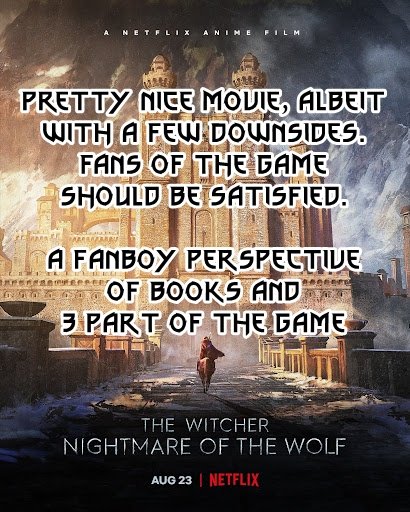
And finally, the day came when we got 1 animation adapting probably the most famous Polish book. My expectations were not too high, I was just expecting to have fun, but I had some doubts. They were mainly because "Nightmare of the Wolf" reminds me too much of "Castlevania". Not that I had a big problem with it, but I was afraid that the creators would certainly manage to capture the characteristic atmosphere. Sapkowski's books are neither too serious nor overly humorous. What I like most about them is that the author knows how to describe many things well and truthfully, or how they work + very well comment and criticize people and behaviors characteristic of overly conservative or progressive views (or any duality of this type). He is not a stick in the ass, as some conservatives know that life is short and you have to get as much fun as possible from it (but not too much, because it hurts your soul and can take you to a dead end). Can find convincing arguments and present them appropriately. You can say a few bad things about him - for example, he can't finish books, sometimes he says one thing in interviews about them, and after a few years he changes his mind and says something else. He is also a beacon bully (I have read and seen many interviews with him + I am such a type of man myself), but this aspect in "The Witcher" was great for him. True, I haven't read too many books, so I don't have much comparison (shame on me), but after talking to colleagues who read a lot more than me, I know that this is indeed his forte. Did the anime makers manage to do this? To some extent, yes, but unfortunately it limited their movie length (and maybe their skills). If it were to make a longer production or preferably a series of several episodes, it would be much better. Certainly there is no tragedy, as some people say, but there are too many flaws through which I cannot say that this is a really good production worth seeing. Btw. The text will be chaotic at times, for which I apologize. There are too many threads I want to write about and it will be hard for me to put it in better shape.
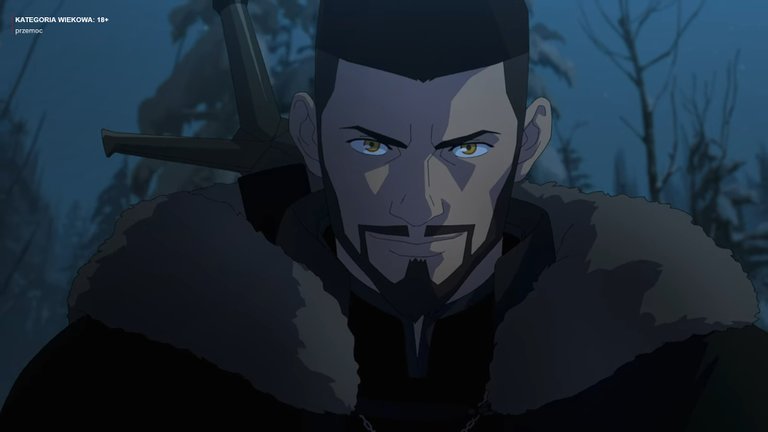
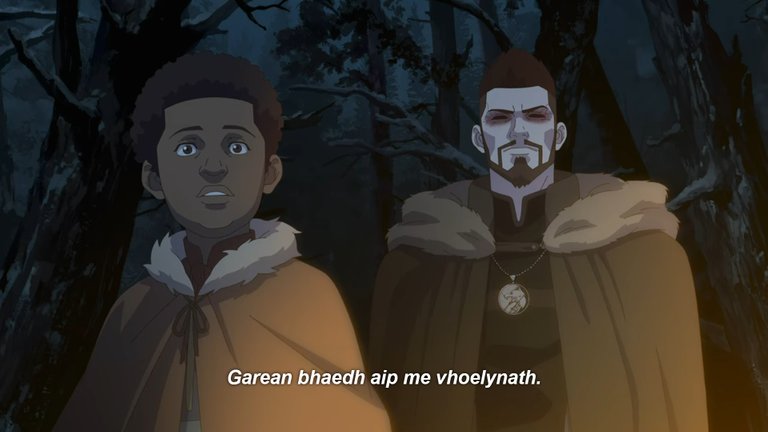
Referring to one of the issues from the above paragraph, I think that the Netflix series well (I mean school scale - something like 7/7 + / 10) adapts Sapkowski's books. I know, I am in the minority, even among my friends, but after watching the series twice, I maintain my opinion. I am not saying that this is a very good adaptation, because there were a few changes that surprised me a bit (although in season 2 I may be in favor of their opinion, because some spoilers are shocking to me). Contrary to popular belief, the third part of the game introduced some changes to the canon of the book, and the series is only "a little" worse in this regard, but it's still a good adaptation. There are almost the same threads in the book, the creators included those things that Sapkowski mentioned in one, maximum two sentences throughout the saga. You can also see that they were inspired by Slavic mythology - the widely criticized Dragon looks like it was in the books (sometimes it could be mistaken for other reptiles - e.g. Pronghorn, they were also not that big, or at least not all of them), yes Striga itself is closer to the book version than what we saw in the intro to part 1 of the game. I say right away, I'm not a fan of them, but I did some research and in fact - they are ugly, yes, but you can't fault that they had no idea for them. In turn, the characters are as I wrote in my review of "Wild Hunt" - you can see that they are the same heroes, but the emphasis is slightly different in terms of their character traits or appearance, which is the norm whenever you try to transfer the story to a different medium. As long as the design of the adaptation does not contradict that of the original, it's all ok, the creators simply put emphasis on other things to suit a different type of art (because, for example, it did not fit the series and clashed with the rest). The sins of Netflix's "Witcher" lie elsewhere - primarily in the implementation, poor approach to some aspects, carelessness, lack of skills of the creators, budget (which is especially visible in the last episode and the Battle of Sodden Hill). I will definitely agree with one thing - while watching this "The Witcher" I felt far too little of Andrzej Sapkowski's prose atmosphere, which I cannot say about its animated counterpart.
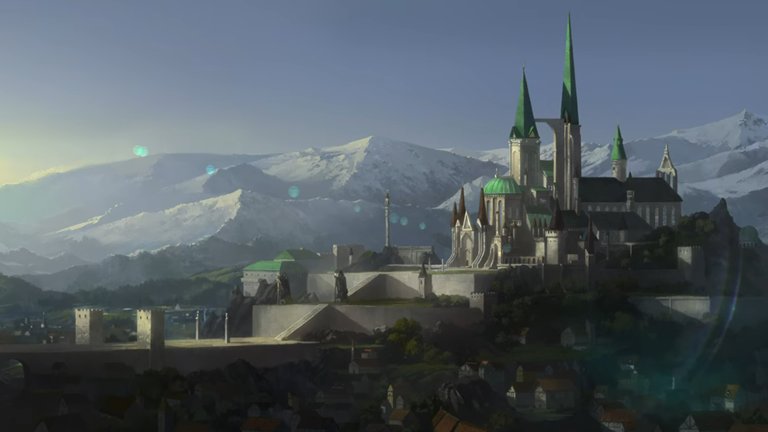
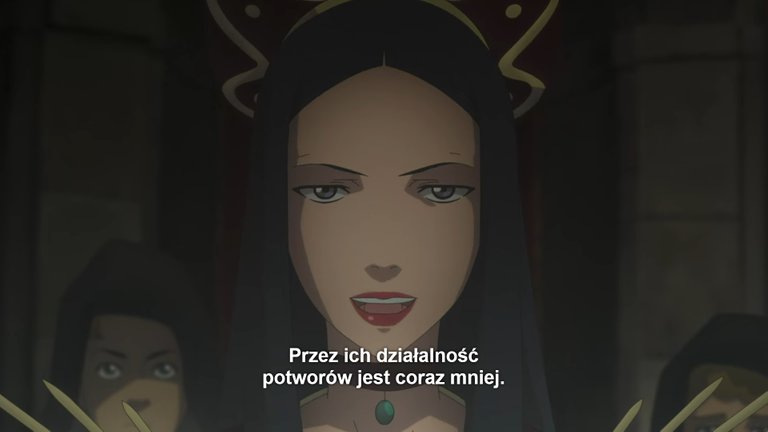
I watched the movie twice and despite some similarities in terms of production (I mean pure production errors, planning, scriptwriter errors, incompatibility with books in some matters), "Nightmare of the Wolf" definitely better conveyed the idea of the Polish author. Yes, I agree with the opinion of my friend Michał that the anime is clearly designed for an American audience. This can be seen, for example, in the flattening of the book climate and adapting it to the American audience. The style of "The Witcher" shows that Sapkowski clearly wrote about "my" part of Europe - the northern countries are the Baltic countries, we are small countries that argue over trifles, we are not too rich and we are not able to unite for a higher purpose (unlike to Germany or England, which inspired Sapkowski when he invented Nilfgaard). Moreover, their citizens slightly resemble savages to the "civilized" empire from the south (means similar to what it looks like in our reality from the perspective of Western Europe, which could be seen, for example, during the earlier migration crisis and the policy of these countries towards "intolerant fools from Eastern Europe"). Sapkowski only "turned" Europe around - he turned west-east, south-north. In this anime movie, the issue is evidently diluted, which is more like a Western approach to fantasy than an Eastern approach (similar to the show). It also suffers from what Sapkowski did very well - showing that nothing is so simple and what is a ceiling for some is a floor for others. Okay, not all the morals of the books were revealing, not all of them had an enlightening effect on the readers (in a sense, they changed them for the better), but they certainly made people think and broaden their perspective, at least in some respects. In this aspect, the animated film is simple, and if it were not for the story of The Witchers who created their own monsters (I am not 100% sure that Sapkowski mentioned this topic in the books, but he certainly clearly marked human greed and the desire for money - and in this matter, The Witchers they are compatible with them and I can imagine that some traits were breeding their own monsters, which they later released. Something like firefighters-pyromaniacs or clerks generating new problems - the latter just happens to be common in our world) + some other small elements that would be flat like the chest of a 7-year-old girl.
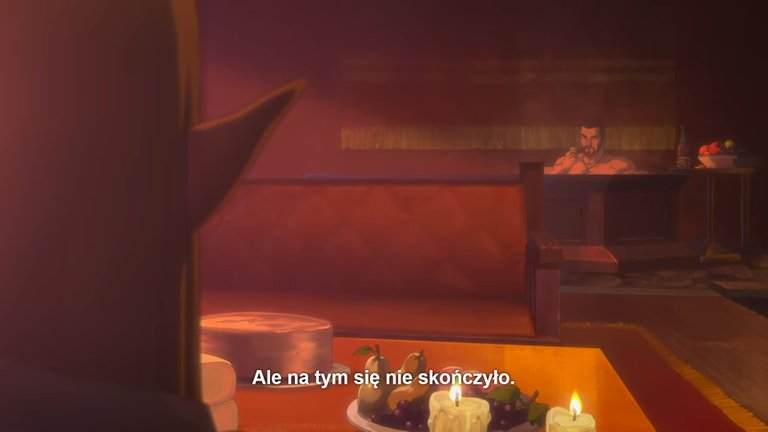
On the other hand, we got many more references to the original - the film from the very beginning gives us names that fans of games and books know. Even if some issues were made wrong and, for example, Kaer Morhen was placed in a different kingdom or the geography of the world was wrongly presented, come on - Sapkowski also made mistakes in this matter and only the third part of the game was consistent in this matter. We got a few quotations from books, references to various situations, e.g. the pogrom of Elves, Geralt says similar things about him as Vessemir, Witchers sometimes accepted orders for people or things not related to monsters, they also showed mutual dislike between them and magicians, people perceive Witchers, such as black neo-Nazis, Jews, Gypsies, and Sorceresses commonly used the magic of illusion (to improve the disastrous taste of food, improve their beauty or clothes, cover up bad smells, etc.). I could mention a few more things, but I think that's enough to prove that the creators did their homework. Yes, some things look a bit strange, like bald Geralt, but after a few scenes you can see that he is - he's smart + his characteristic smirk known from books or games. In my opinion, it takes a lot of bad will to say that the books spit on what Sapkowski invented.
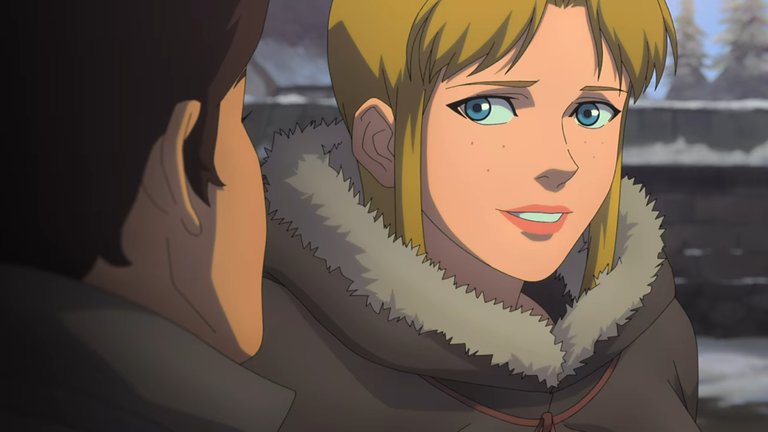
Okay, I'm talking so much about references and other things, and I haven't touched on the plot yet. I could say that this is a loose adaptation of "Season of Storms" combined with the events that took place before the action of the stories and saga. Instead of Geralt, we have Vessemir, some changes were also made (eg Aguaras, which, as far as I remember, were not created due to human interference), but on the other hand we have magicians who did experiments on monsters. The film shows us the genesis of Vessemir and the other Witchers, two attempts (Trial of the grass and using poisons, potions, magic on them to extend their life and give a large boost to statistics or deprive human weaknesses, such as strength, agility, speed, reflexes, resistance to blows. , poisons, suppression of emotions, shorter reaction times, better body control), training in Kaer Morhen. In the meantime, we observe a fairly simple plot - mysterious monsters kill and terrorize the inhabitants of one of the kingdoms. The local sorceress blames the witchers with all the blame, wanting to exterminate them (which is consistent with the books - among others, the magicians used the bad esteem enjoyed by the Witchers to convince people that the monster hunters wanted to murder them). Vessemir investigates the matter and discovers that to some extent these allegations are true.
The plot is not too complicated, which by default should mean that the movie will be light and pleasant to watch. Unfortunately, its pace is not even (I liked the first half very much, the second half - mainly due to the fact that there was not enough time to expand the threads), and I find some author changes stupid. For example, trying the grass - the very idea behind it is very good, but murdering children this way is sheer stupidity. It would be different if they gave them swords and the test would be to survive the night (as, for example, the warriors of Sparta did when they were still children). It would make sense, but it would be... Well just stupid. Some say it was like that because they had a lot of mouth to feed and some of them had to be shed. Okay, that would make sense if the wolf trait was underfunded, but in those days they still had a lot of work, they had the support of the king, people considered them a necessary evil, so it wasn't a situation like, "OMG, we have to send the kids to certain death, because we will have empty bellies in winter ". This is also confirmed by Vessemir's approach to wintering in the fortress. I think it's a writer's oversight, because "Nightmare ..." has some internal flaws. The second change that I don't like is the Kaer Morhen pogrom. This is a great thread that I really wanted to see in the anime. It was possible to show how magicians with knowledge (such as priests centuries ago in various religions, and now leaders of sects) use the local mob to achieve their goals. It would be a great occasion for a social commentary and criticism of racism, or an artificial induction of one group against another, which was not lacking in the original book. Okay, I understand that it would be funny if you sent ordinary peasants to fight the Witchers who resemble the warriors from the end of 1 series "Dragon Ball", but you could create them a bit weaker, not killing machines. Yes, Vessemir and his men were indeed like that, but their power had been greatly exaggerated. The books and games presented them more as Rambo-type commandos, only slightly stronger than Sylvester Stallone's character. Not to mention the Marks (Igni and Ard) which reminded me of the Ki or Kamehameha energy bullets from the previously mentioned anime. The scene on the bridge, the dissolution of the frozen lake, the burning of all the monsters in the cave and a few other examples looked impressive, I won't say, but it has nothing to do with how the games or the books showed it.
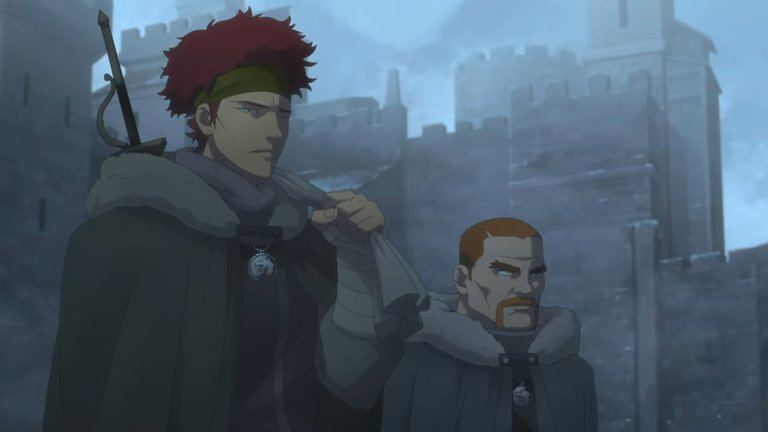
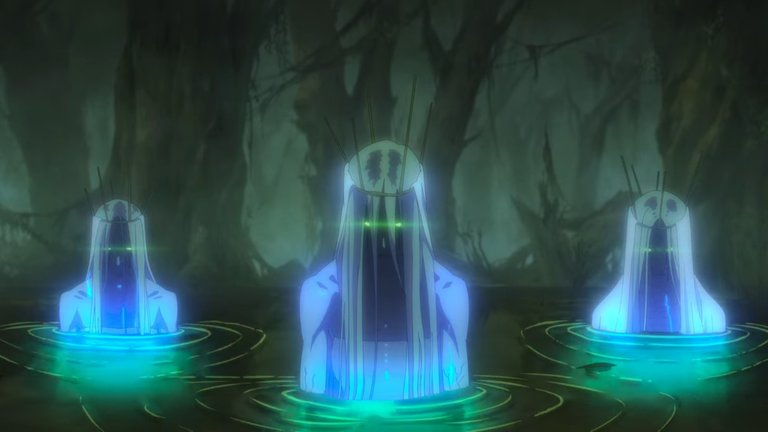
As for the heroes, I agree with most of the criticism on the internet on this point. I do not think that Tetra is better Yennefer than in the series (which by the way, it seems funny to me, because the black-haired sorceress is exactly the same as in the book). In my opinion, this is quite a cliché character, just like almost every character in this movie. Probably the only exception is Illyana Zerbst, who was well created and presented as if Sapkowski did it (for comparison, I said the same about Gaunter O'di and Olgierda von Everec). Coming back to the sorceress, her character is too one-dimensional, and the motivation to kill the Witchers, although well justified, is far from the standards to which Sapkowski or the scriptwriters of the 3rd part of the game have got used to. The same can be said for Deglan, who had the potential for something more. On the plus side, I can save his voice actor, who we will see in season 2 as Dijkstra. However, it seems to me that the weakness of these characters is mainly due to the length of the film - it couldn't be done better in this timeframe, so it had to be simplified. It hurts especially in the context of Vessemir, who got far too little airtime despite being the title character. I like his design and character, I see some similarity to the original character, but there are too few of them to be able to successfully defend him from criticism. The creators also gave some texts that Vessemir said in one form or another - e.g. at the beginning, when he tells the monster to decide on one style of combat or during a skirmish with the knights in the inn, which is an obvious reference to the beginning of the third part games. Contrary to the opinion of some, I admit the possibility that it could have been like that when you were young. After all, where the saying "The ox forgot, how a calf was" came from - many of our grandparents, grandmothers, mothers and fathers had their adventures, sexual fantasies, they also made stupid mistakes, probably repeated them, because being consistent is a typical problem of humanity. Most people do not talk about it because they either have forgotten or want to forget, or they know that there is nothing to brag about. Anyway, I can easily refer to books in which Vessemir was not portrayed as a conservative who forbade others to play. I once wrote on Facebook that this is the type of man who would at best try to distract Ciri from casual sex or excessive partying, but would not forbid her to do so. But if she or Geralt, Esskel or Lambert insisted on theirs, Grandpa Vessemir would sigh and say something like, "If you really have to, get yourself a vial of contraceptive elixir or hangover drink." I can also refer to the game, specifically the fragment in which the Witchers were pouring water and wondering about their father's past. I was a bit disturbed by his approach to money, because Vessemir was probably not like that, but on the other hand - probably each of us had a stage in our lives when he earned a lot of money (if he experienced such a situation, of course).
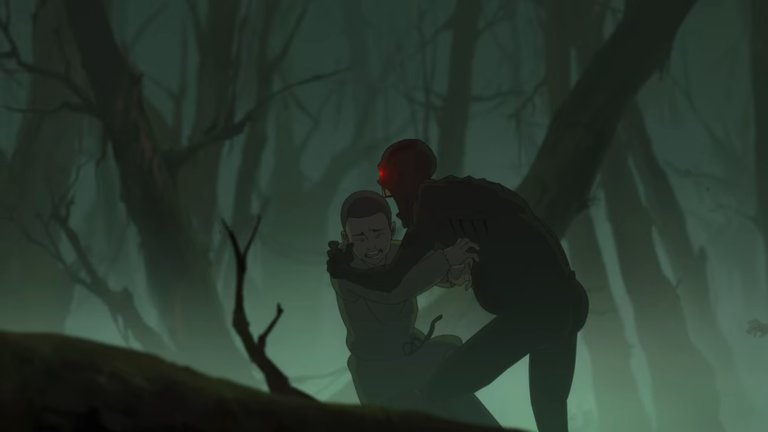
When it comes to graphics, animations and lines, I will say by default - I do not know anything about it + I am one of the last people who should comment on aesthetics. Overall good, a few scenes looked sub-par (especially the CGI monsters, some looked and moved quite poorly) but I didn't see much to complain about. The fights are dynamic, nice, you can feel the strength of the Witchers (sometimes even too much ...), the magic looked good too. The style reminds me too much of "Castlevania" and not enough of "The Witcher", but I appreciate the fact that MIR's games were inspired by some things. I hope that due to the cooperation between Netflix and CDPRed, there will be even more such inspirations in the future. Especially with monsters that generally looked shitty. The drowning in the swamp was ok (then not anymore, the copy-paste was too visible), Leszy was evidently partly inspired by that from the game (turning into ravens), but not in terms of design - he disturbed many people from what I saw, he surprised me a bit for 1 session, but at 2 it was better. Nevertheless, the one from the game looks much atmospheric and makes a better impression. Very good ghouls, very weak basilisks, these "dogs" too, Aguara looked embarrassing (I recommend to see her appearance in Gwent - she looks beautiful!), But her behavior, approach to children is faithful to books. So is their power of illusion magic, in which they dominate many sorceresses, magicians, and the Witchers have a hard time overcoming it. It's a pity because there was potential for something much, much better. When it comes to music, this one was closer to what can be heard in games + more in the atmosphere of this title than what we heard in the series, but it is far from the soundtrack from the third part of the game. Nevertheless it was pretty good, my favorite track is the one that played after Vessemir's mutation.
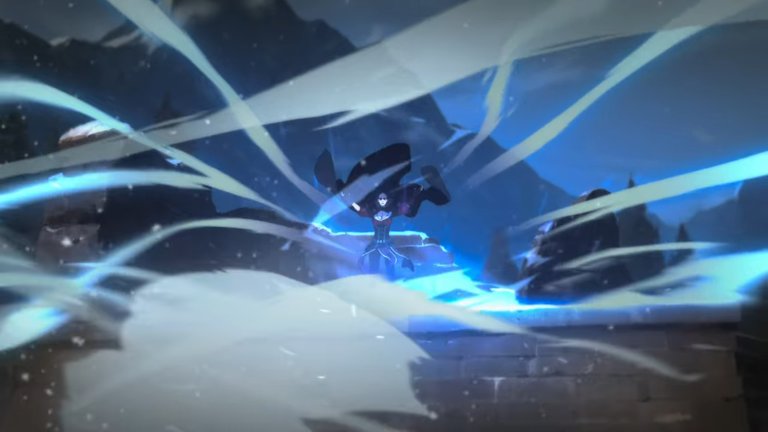
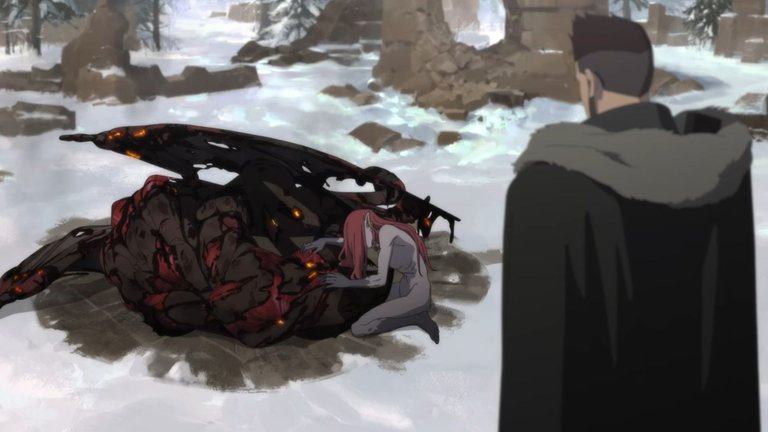
The summary will be short because this text is already too long. Despite its advantages, the film seems too bland to me. People who do not know "The Witcher" are unlikely to find many interesting things here (which might look different if it was a series or a longer movie with a larger budget). However, I do not know too many such opinions, because I do not know such people. My girlfriend was disappointed and expecting something more (but on the other hand, she didn't rate it as a complete failure), my friend doesn't know books, he only played games and was delighted - only he loves gore and that kind of atmosphere, so the movie hit to his taste. Fans of books and games were more or less disappointed (I can conclude it from the opinions on the Polish and foreign Internet and from my friends) and only a few people, at least from those whose reviews I read, were satisfied with this film. They were not delighted with it, rather it was closer to my opinion - it was OK, sometimes it was good, but it could have been noticeably better. For me, this is a bit of wasted potential, but if Netflix draws conclusions from the criticism, it should only get better. It is a bit better than not bad for the first film of this type in the franchise "The Witcher" and I am waiting for more spin-offs. I would rate this one at -7/10, but with a heart, because despite my complaints, it was more pleasant to watch than, for example, the latest Gundam film (yes, I know, it's completely different genres, but I look only in terms of fun). How did you like it?